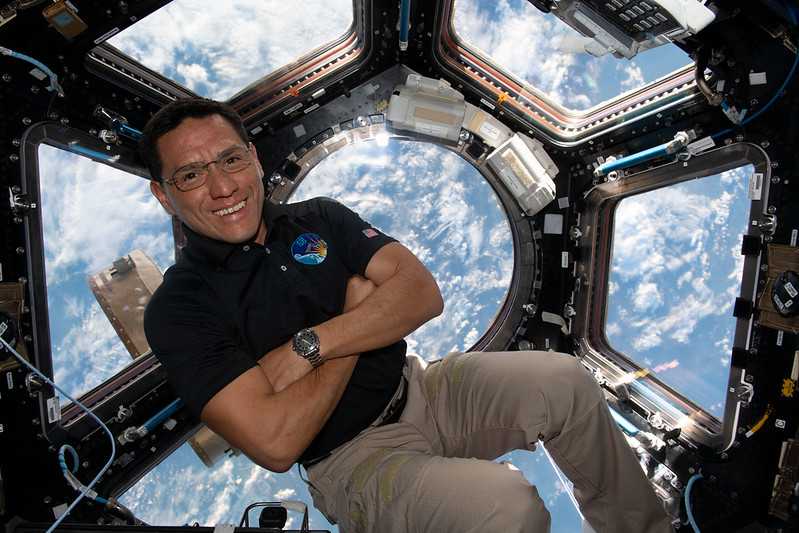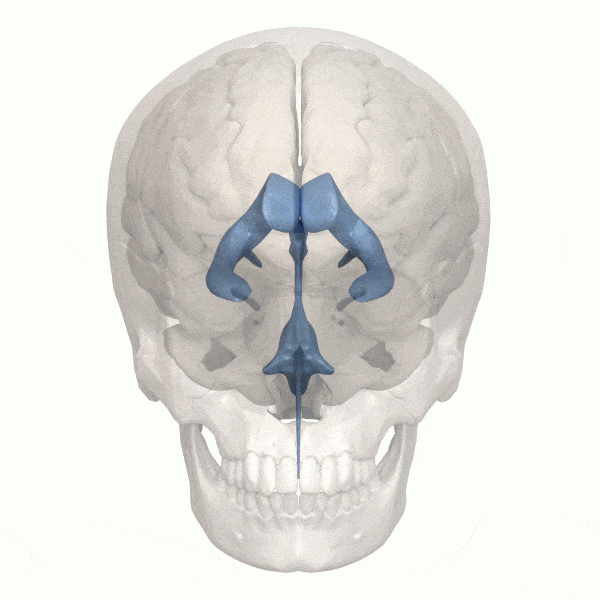Astronauts’ brains need a break after long missions
On June 8, 2023, scientists at the University of Florida announced results of a new study that said astronauts need to take a three-year break after long spaceflights to allow their brains time to recover.
The researchers read brain scans of 30 astronauts. They studied before and after spaceflight scans of those who were in space for just two weeks to those who were in space more than six months. What they found was that astronauts who were in space longer than 6 months showed significant expansion of the brain’s ventricles. And, those astronauts with brain changes needed at least three years back on Earth for the ventricles to fully recover.
The scientists published their findings on June 8, 2023, in the peer-reviewed journal Scientific Reports.

What are the brain’s ventricles?
The ventricular system in the human brain contains four large open cavities deep inside your brain – ventricles – that hold cerebrospinal fluid. This cerebrospinal fluid cushions the brain, providing protection. The ventricles also function as a system that provides nourishment and waste removal from the brain.
When an astronaut is in a zero-gravity environment for an extended period of time, the fluid in their bodies isn’t naturally pulled down toward the ground. Therefore, fluid can shift upward into the brain. This pushes the brain higher within the skull, causing the ventricles to enlarge.
Rachael Seidler, an author of the study from the University of Florida, said:
We found that the more time people spent in space, the larger their ventricles became. Many astronauts travel to space more than one time, and our study shows it takes about three years between flights for the ventricles to fully recover.
The researchers found that the expansion of the brain’s ventricles was the longest-lived effect on the brain from spaceflight. However, they’re not sure yet how this brain change affects astronauts. Seidler said:
We don’t yet know for sure what the long-term consequences of this is on the health and behavioral health of space travelers, so allowing the brain time to recover seems like a good idea.

Studying astronauts’ brains
Here’s how the 30 astronauts the researchers studied broke down in terms of mission length:
- 8 astronauts were on two-week missions
- 18 were on six-month missions
- 4 were in space for approximately one year
Overall, the study provided good news for those who long to either visit space or eventually live there. A two-week journey to space didn’t affect brain ventricles. So if you were hoping to take a quick trip into space from the rapidly growing industry of space tourism, your ventricles should be fine. In addition, those planning to go to Mars or take longer missions shouldn’t have to worry about ever-growing ventricles. The researchers found that for astronauts in space more than six months, the ventricular enlargement effect tapered off. Seidler explained:
The biggest jump comes when you go from two weeks to six months in space. There is no measurable change in the ventricles’ volume after only two weeks.
We were happy to see that the changes don’t increase exponentially, considering we will eventually have people in space for longer periods.
Bottom line: A new study found that astronaut’s brains need a three-year break after long missions. Missions of up to six months expand the ventricles in astronauts’ brains, a system that protects, nourishes and exports waste.
Source: Impacts of spaceflight experience on human brain structure











